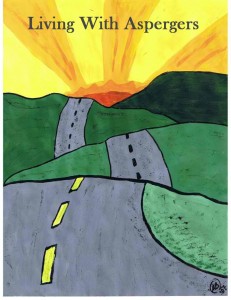It was Albert Camus that postulated that we must look at Sisyphus, the Ancient Greek myth of a king punished by the gods to roll the same boulder up a hill for eternity, and picture him as happy. Camus looked into the face of the absurdity of life, and rather than concluding with nihilism, like so many others, he submitted happiness, perhaps an even more absurd thought. Because from such a postulation, we must ask, where does happiness derive from? Consciousness? The inverse of tragedy? Or perhaps it’s an innate quality within us; one we must invariably either submit to or reject, but invariably it just doesn’t matter.
But happiness is an ideal, an abstraction meant to make us comfortable with pushing a boulder up the same hill every single day without going mad, committing suicide, or both. We strive for such comfort so that we might be able to deal with the crippling reality of our infirmity, our transience, our lack of sustainability, or, inevitably, our life.
So, I submit that we do not picture Sisyphus happy, but comfortable. He is perhaps not physically comfortable in his task, but finds the capacity for comfort in knowing he has a task the next day, despite its inherent meaninglessness. Perhaps the boulder would not get pushed up and then fall back down in an endless cycle, but we rationally know the conclusion, whether Sisyphus is there or not: the boulder will be there.
Man can only find comfort in knowing that while his existence will barely leave a mild dent on the universe, he can still do something day in and day out until we’re called back—i.e. extinct. When we are gone, the hallways of space, if we are lucky, will whisper our name, but there will be nothing or no one to hear it. No, life is merely us grasping at identity, and that, I believe, is the problem. We favor identity over comfort, forcing ourselves into existence rather than realizing our irrelevance within everything and simply sitting back and relaxing.
The will to comfort is a philosophy I created to capture the embodiment of man’s struggle to find purpose in a void of purposelessness. It derives from Nietzsche and Adler’s will to power, then Freud’s will to pleasure, and finally Victor Frankl’s will to meaning. All three have a singular component in common; they are all “will to…” philosophies and/or psychologies. They’re a way to look at the world, and assume a particular quality of life, or the conception of life, to be the primary justification of existence.
To begin with the will to power: Well, power is vague, which I guess can probably be said about the words pleasure and meaning and even comfort. But power assumes a differentiation of between people. Not everyone, Nietzsche realized, could possess the will to power, because if everyone did, then no one did. The will to power is exclusionary, where a few conquer the many—mostly using catchy aphorisms and quick phrases that can be quoted on the spot (which I imagine is how Ayn Rand became popular). But ultimately the will to power is superficial. Individual power means nothing to the universe, because the universe is the entirety of all power.
Then, the will to pleasure: One can only guess what Freud meant by “pleasure” considering his own psychology, his own biography. But are we all seeking pleasure? Some, sure. But those that strive for asceticism, a transcendence of being, all of which requires a lack of pleasure, we cannot say they find meaning in pleasure. One cannot imagine that Sisyphus find pleasure in his task, since rolling a boulder is both menial and pointless. Freud’s pleasure principle does not accurately capture the panorama of existence, but merely a fraction of it. Yes, a large majority more than likely seek out pleasure to avoid pain, but not all. How can a psychology that ascribes to be so universal not seek out just that—universality?
Finally, the will to meaning: To be honest, Frankl’s philosophy is perhaps the most convincing. The will to meaning. We all seek meaning. It’s vague enough to mean anything the reader wants it to mean. But does its vagueness make it right? Are we all seeking meaning? And is that meaning justifiable? If my meaning in life is to destroy another person’s meaning, which doesn’t necessarily mean killing, then the will to meaning is subverted. And if I’m successful in destroying their meaning in life, then they have no meaning and must either kill themselves or live with no will to meaning.
 The will to comfort, on the other hand, doesn’t consider the individual. It simply means that man seeks comfort. Be that the actual physical comfort of conserving our energy and being lazy, or striving very hard, working countless hours just to simply find comfort in our task, of feeling needed, despite our inherent interchangeability. The will to comfort seeks to destroy the 20th-century foundation of individuation. We as a society, as a species, will perish. But we can sustain ourselves. The only way, though, is through comfort.
The will to comfort, on the other hand, doesn’t consider the individual. It simply means that man seeks comfort. Be that the actual physical comfort of conserving our energy and being lazy, or striving very hard, working countless hours just to simply find comfort in our task, of feeling needed, despite our inherent interchangeability. The will to comfort seeks to destroy the 20th-century foundation of individuation. We as a society, as a species, will perish. But we can sustain ourselves. The only way, though, is through comfort.
We must be comfortable with ourselves to recognize that we are within the flux of time, a single grain of sand within a beginning and end that doesn’t care whether or not we’re here. Life is justified by recognizing our minuteness, and then amending our individuation to the realization of that there is no meaning, power, or pleasure that can justify our existence. We can only look into the abyss, recognize meaninglessness, and find metaphysical solace within it.
One might find this philosophy flawed in its absence of struggle. What, oh what, are we struggling for in the will to comfort? Nothing. Why struggle in a world of meaninglessness? In the world of Sisyphus? It’s simply an illusion to think our struggle means anything, that we’ll suddenly become, or unbecome in Buddhism, these transcendent beings that aren’t subject to the same cruelties and meaninglessness of the universe. I implore you to just find comfort in your existence, in the fact that you’re here, which, if you trace back the history of existence, makes absolutely no sense. Comfort in the nonsensical can be the only justification that you’ll find.
The Will to Comfort,




